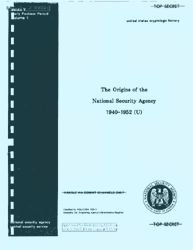John Whitgift was Elizabeth’s favourite Archbishop of Canterbury. He not only shared her sturdy disapproval of Puritans, but also remained, like the queen, unmarried. Elizabeth never approved of clerical marriage, and seems actively to have disliked the wives of her married bishops.
Tudor England was more intimate with death, in all its forms, and the classical and medieval notion of the ‘good death’ was still widely held. Yet neither Elizabeth’s religion nor perhaps her preferred stoic philosophy provided her with consolation in her last days. Nor were there the social consolations of friends and family. She had outlived friends and favourites, contemporaries and juniors. Leicester had died in 1588, Cecil in 1598, and she had signed Essex’s death warrant just two years before. It is said that she was hit particularly hard by the death in February 1603 of her old friend and cousin Catherine Carey, Countess of Nottingham (wife of Lord Howard of Effingham). Elizabeth’s reluctance to face death was of a piece with that reluctance to face the inevitable which she had often shown in her royal career. It is symbolised in her failure to make a will.
Reports from her deathbed vary hugely in their details. According to one, she asked Whitgift to pray for her. According to the recollections of one of her ladies in waiting, Lady Southwell, she sent him packing with the comment that he and his kind were nothing but ‘hedge-priests’. Lady Southwell’s testimony betrays her own Catholic inclinations, and may therefore be suspected at least of embroidery in its desire to tell a good story against the Church of England. On the other hand, the words she puts on Elizabeth’s lips seem to carry the familiar lash of the royal tongue. This same report includes another story which bears all the hallmarks of authenticity. The succession to the throne had by now been wrapped up by Robert Cecil’s secret diplomacy with James VI. Yet even now her hopeful councillors sought some kind of answer from her on this, the oldest unanswered question of her reign. Believing her unable to speak, they offered to run through a list of candidates and asked her to lift a finger if she wished to approve one. Various names, including that of the king of Scots, left her unmoved. But at the name of Lord Beauchamp, a male descendant of the Grey line, she burst into life: ‘I will have no rascal’s son in my seat, but one worthy to be a king’. Yet she literally would not lift a finger to solve the problem. Hesitating to the end, she lost consciousness a little later in the day, and died in the night.




 World History
World History









